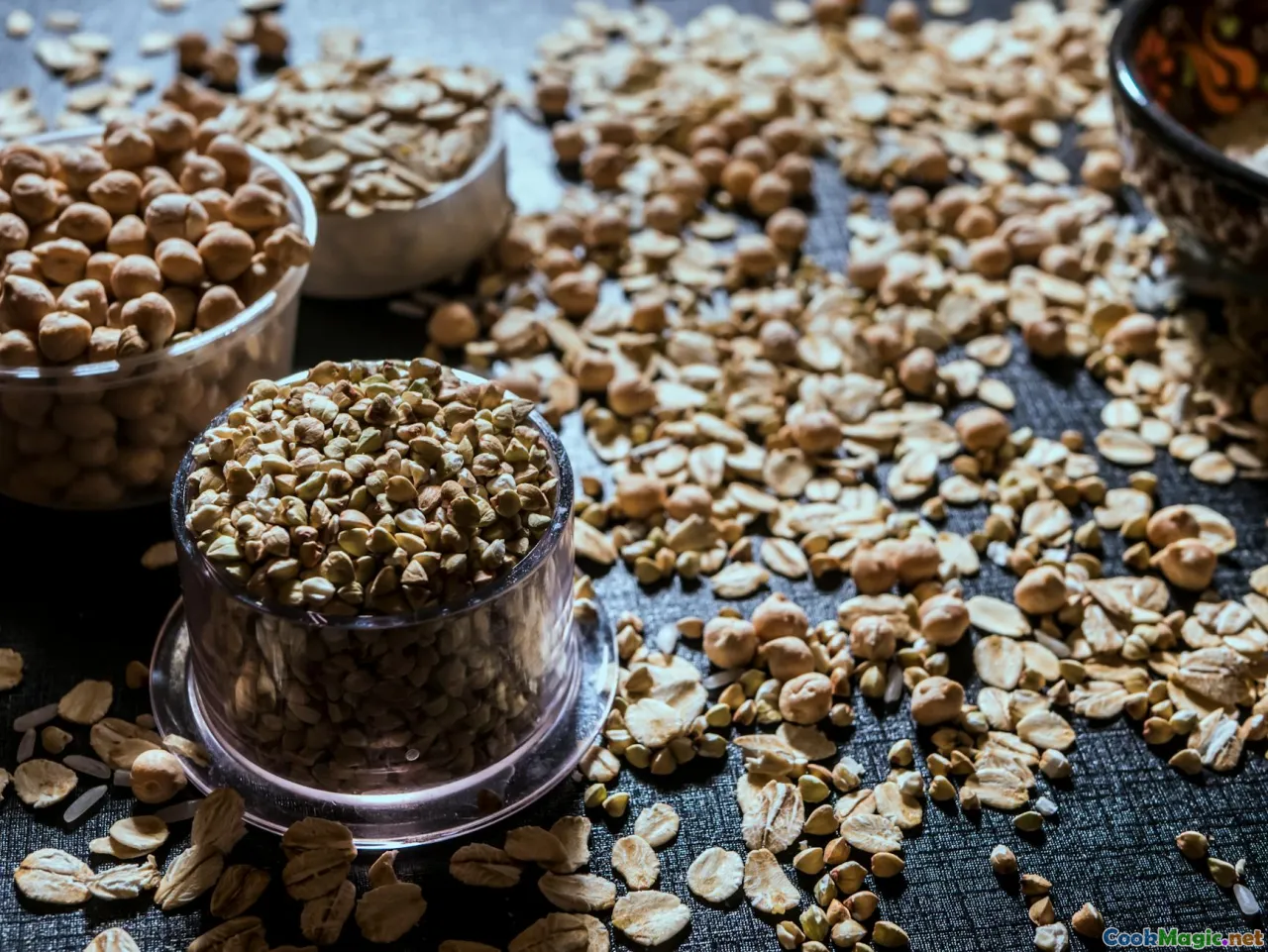Legume Myths Debunked in Vegetarian Cooking
8 min read Uncover the truth behind common legume misconceptions in vegetarian cuisine and learn how these versatile ingredients can transform your dishes. April 27, 2025 15:00
Legume Myths Debunked in Vegetarian Cooking
Imagine a steaming bowl of lentil stew, rich with the earthy aroma of cumin and garlic, or a vibrant chickpea salad bursting with fresh herbs. These humble legumes are the backbone of countless vegetarian dishes worldwide, yet they’re often misunderstood. For many, legumes are associated with gastrointestinal discomfort, limited nutritional value, or even cultural stereotypes that have persisted through generations.
But what if I told you that many of these beliefs are myths? That legumes are not only delicious and versatile but also a powerhouse of nutrition, capable of elevating any vegetarian meal? Let’s embark on a journey to debunk common legume myths, explore their cultural significance, and unlock their full potential in your culinary repertoire.
The Cultural and Historical Significance of Legumes
Legumes have been a cornerstone of human diets for thousands of years. From the ancient Mesopotamian fields to the bustling markets of India, these protein-rich seeds have sustained civilizations and fostered cultural traditions.
In Mediterranean cuisine, chickpeas and lentils feature prominently in hearty stews and salads. In India, dals and curries are staples, celebrated for their depth of flavor and nutritional benefits. In Latin America, black beans and kidney beans are essential ingredients in dishes like feijoada and burritos.
Their versatility is rooted in their ability to absorb spices, herbs, and flavors from their surroundings, making them adaptable across regions and cuisines. Historically, legumes served as affordable, long-lasting sources of protein before the advent of modern refrigeration and globalization.
Understanding this cultural tapestry enriches our appreciation and encourages us to break free from misconceptions.
Common Legume Myths and the Truth Behind Them
Myth 1: Legumes Are Difficult to Digest and Cause Bloating
**The myth:**Many people avoid legumes because they believe they cause excessive gas, bloating, or digestive discomfort.**The reality:**While it's true that legumes contain oligosaccharides—complex sugars that can cause gas—this is not an unavoidable outcome. Proper preparation techniques can significantly reduce these effects.**What to do:**Soaking dried beans overnight, rinsing them thoroughly, and cooking them with herbs like bay leaves or ginger can help break down troublesome compounds. Introducing legumes gradually into your diet also allows your digestive system to adapt.Personal insight: I vividly remember my first experience with lentils; I was wary of the bloating. But after learning these simple tricks, I found myself craving hearty lentil soups that left me feeling satisfied, not uncomfortable.
Myth 2: Legumes Lack Adequate Protein for a Vegetarian Diet
**The myth:**Some believe that vegetarian diets lack sufficient protein, and legumes are not enough to meet nutritional needs.**The reality:**Legumes are an excellent source of plant-based protein, often containing 15-25 grams per cup cooked, comparable to some animal sources. When combined with grains like rice or quinoa, they form complete proteins, providing all essential amino acids.Culinary tip: Classic dishes like rice and beans or chickpea curries exemplify how legumes can be the centerpiece of a balanced, protein-rich meal.
Myth 3: Legumes Are Overrated and Not Flavorful
**The myth:**Some dismiss legumes as bland or flavorless.**The reality:**When cooked with aromatic spices, herbs, and flavorful ingredients, legumes absorb and enhance these flavors, resulting in dishes that are complex and satisfying.Taste transformation: Think of the smoky depth of black bean chili, the creamy richness of hummus, or the spicy warmth of dal—each showcases how legumes can be the soul of a dish.
Myth 4: Legumes Are Not Sustainable or Environmentally Friendly
**The myth:**There’s a misconception that legumes are resource-intensive.**The reality:**Legumes are among the most sustainable protein sources; they fix nitrogen in the soil, reducing the need for synthetic fertilizers, and require less water than many animal proteins.Impact: Incorporating more legumes into your diet supports environmental health and promotes sustainable agriculture.
Embracing Legumes in Your Vegetarian Kitchen
Now that we’ve busted these myths, how can you incorporate legumes more confidently into your cooking?
Cooking Techniques and Tips
- Soaking and rinsing: As mentioned, this reduces compounds causing gas.
- Flavoring: Use spices like cumin, turmeric, garlic, and ginger to enhance taste.
- Texture play: Blend cooked legumes into creamy hummus or soups, or keep them whole for salads and stews.
- Experimentation: Try making falafel, veggie burgers, or lentil patties to diversify your menu.
Signature Dishes to Try
- Middle Eastern Lentil Soup: A velvety, spiced broth topped with fresh lemon.
- Indian Chana Masala: Chickpeas simmered in a tomato-based gravy with garam masala.
- Mexican Black Bean Tacos: Spiced black beans with avocado and salsa.
- Italian Pasta e Fagioli: A hearty bean and pasta stew.
Personal Reflection
For me, embracing legumes transformed my approach to vegetarian cooking. The first time I cooked with dried chickpeas from a local market in Morocco, I was captivated by their nutty aroma and satisfying texture. That experience fueled my passion for exploring global legume dishes and sharing their stories.
Final Thoughts
Legumes are more than just humble ingredients; they are culinary treasures with rich histories, cultural significance, and undeniable health benefits. Busting myths around their digestibility, nutritional value, and flavor potential empowers us to cook more boldly and consciously.
Next time you reach for a bag of lentils or a can of beans, remember: these little seeds hold the key to vibrant, nourishing, and sustainable vegetarian cuisine. Embrace them, experiment with flavors, and let your kitchen be a celebration of their versatility.
Happy cooking!









